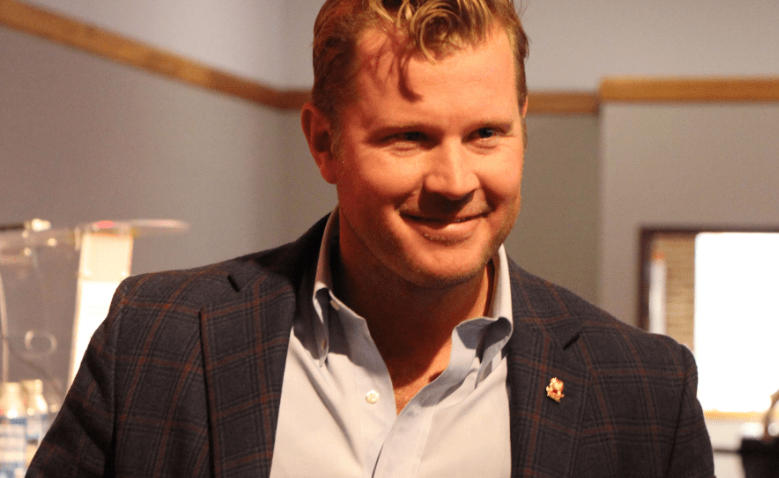
- Details
- By Aaron Payment
Guest Opinion. As I approach Elder status, I recognize that people make mistakes with the words they use. I’m also learning a traditional teaching of “grace” and “forgiveness.” However, being objectified and relegated to a less than human stereotype or caricature is not a new phenomena for American Indian/Alaska Natives to have endured. We have evolved as a society well past such racism.
Racial epitaphs such as, “drunken Indian,” “lazy Indian”, and derogatory sayings like, “the only good Indian, is a dead Indian” have long been used to dehumanize and diminish us. Manifest Destiny ideologies that would have you believe we were in need of saving and assimilation tactics to convert the savages was official federal Indian policy. This has been so aptly chronicled in the Newland Reports I and II on the impact of federal Indian boarding schools. The impacts of historical and intergenerational trauma are borne out in the US Commission on Civil Rights, “Broken Promises” Report.
The recent revelations of Trump-backed GOP Montana Senate candidate Tim Sheehy’s characterization of American Indians as “drunk at 8am” is an example of how some harken back to the good old days when America was great - a time when American Indians were in need of civilizing or a period before American Indians were granted the right to vote. Some relish a time when American Indians were not considered American citizens and women, and African Americans were not permitted to vote. Is this when America was great?
While we recognize we are at the 100th anniversary of American Indian citizenship per the Snyder Act of 1924, it’s a mistake to perceive this as an anniversary worth celebrating as it is so offensive America's first people were the last to be granted citizenship. Further, enactment of Indian citizenship did not guarantee American Indians the right to vote. Not withstanding the 1964 Civil Rights Act, we still face strident racism in voter suppression.
Arizona’s recently republican legislature enacted a citizenship test to vote in federal elections. I wonder if this is due to Arizona turning blue in the 2020 Presidential race as the Native vote in Arizona is 14% of the total voter population. The Native populations in Arizona, Michigan, Wisconsin, Nevada, North Carolina, Colorado and I would argue Georgia are proportionally larger than the margins of victory in presidential elections in 2016 and 2020, such that the candidate’s unforced errors in calling us, “drunken Indian” may just seal a candidate’s fate.
Senator Tester has long been an ally of Indian Country. As chairman of the Senate Indian Affairs Committee, he staffed up the committee with some of the brightest and best talent from Indian Country. He is a known-quantity to Montana Natives. His opponent’s derogatory references to nearly a 100,000 Native voters may end up being the unforced error that determines the outcome of the Montana Senate race. It’s hard to say in the untenable era of open racism given permission by some Presidential candidates.
Finally, there is a lot at stake in this election. Given the Native vote and the blue wall in 2020 likely as determined by the Native Vote in Michigan, Wisconsin, Arizona and other states may very well mean draconian measures or out right retribution is on the horizon. You don’t need to take my word here, look to candidate platforms as it relates to the treaty and trust obligation and in protecting our tribal sovereignty. Natives should vote in our own best interest no matter the candidate or partisanship. While “grace” and “forgiveness” are traditional teachings, an acknowledgment and apology for characterizing Natives as “drunken Indians” is a necessary first step. I’m not, however, optimistic such an apology is forthcoming from Montana Senate candidate Sheehy.
Dr. Aaron Payment is the former chairperson of the Sault Ste. Marie of Chippewa Indians. He is currently sits on the Tribe's Tribal Council.
More Stories Like This
Tribal Economic Development Programs in the Federal Contracting Environment: What They Are, and What They Are NotWhy Redefining Public Health Degrees Would Harm Native and Rural Communities
The SAVE America Act Threatens Native Voting Rights — We Must Fight Back
The Presidential Election of 1789
Cherokee Nation: Telling the Full Story During Black History Month
Help us defend tribal sovereignty.
At Native News Online, our mission is rooted in telling the stories that strengthen sovereignty and uplift Indigenous voices — not just at year’s end, but every single day.
Because of your generosity last year, we were able to keep our reporters on the ground in tribal communities, at national gatherings and in the halls of Congress — covering the issues that matter most to Indian Country: sovereignty, culture, education, health and economic opportunity.
That support sustained us through a tough year in 2025. Now, as we look to the year ahead, we need your help right now to ensure warrior journalism remains strong — reporting that defends tribal sovereignty, amplifies Native truth, and holds power accountable.
 The stakes couldn't be higher. Your support keeps Native voices heard, Native stories told and Native sovereignty defended.
The stakes couldn't be higher. Your support keeps Native voices heard, Native stories told and Native sovereignty defended.
Stand with Warrior Journalism today.
Levi Rickert (Potawatomi), Editor & Publisher

